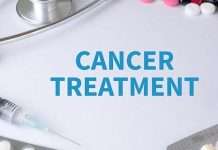Hypertension already affects one billion people worldwide and kills nine million people every year. Prevalence of high blood pressure is highest in some low-income countries in Africa, with over 40 per cent of adults in many African countries thought to be affected. Hypertension is a silent, invisible killer that rarely causes symptoms. A United State Fellowship Trained Cardiologist, Dr. Godfrey O. Achilihu, in an interview with Gracia Obi, x-rays measures in which the government health system can provide these services to the less privileged, with emphasis on women and children.
What would you say of the various problems facing the health care sector in this country?
There are issues, but the problems are not insurmountable. It starts with the decision of the government to address the problems. It also starts with the decision of the medical practitioners to address their part.
Individuals and government can invest in health, because they are spending as much money as they spend abroad. If they do, it will save a lot of capital flight which happens when Nigerian patients go abroad. In fact, it will improve the economic situation of the country.
Considering the high cost of services of medical specialists, don’t you think it is important that a trust fund be established to meet the needs of people who are unable to afford the cost?
Yes, there should be a system that caters for the less privileged. Government should have a fund that caters for the poor in such a manner that no one is left out. It is the case abroad where government caters for the less privileged. In Medicare or Medicaid, government pays for health care. In the United States, Medicare actually pays for it. It seems to me that we are running a system that is defective. In such a defective system, people that work for government are the ones that benefit from the defects of the system. It shouldn’t be the case because this country belongs to all of us. Those in government have access to health care, including the option of going abroad at the expense of the country. But if you don’t work for government, oil companies or banks, you may not get the health care you need, as you are likely unable to afford it.
Government should be able to get corporations to buy into health care provision. For example, a family should be able to afford health insurance, in which you pay a certain level of deduction from you earning. The idea is that it will be very difficult to get someone to pay several millions at a time because he was not expecting the problem. But insurance can help give some equivalent of their health care, when they are sick. This is because the insurance company will offset some of your bills when you are sick. I think that system can be established here in Nigeria.
How can professionals help to create awareness about the availability of these services in this country?
The level of awareness can be raised. Not just about what can be done to help patients but also about the disease symptoms itself. Nigeria should create a system such as “Calling 911” as is the case abroad. An emergency help line should be established. When someone has passed-out in front of you, you can just call 911 and the appropriate authorities will swing into action. When you dial that number, it rings at a central station which will then tell the ambulance where you are. Then help will reach you.
It is true that we, the professionals, have a lot to do. But apart from that, there are certain technologies that are required to make it work. We need consistent power supply. If for example, I want to call someone in Asokoro and there is no electricity supply, how do I get that done? Many factors are involved. Raising awareness can also be done through the churches, mosques, schools and local associations, while the doctors are able to provided intermittent and consistent information about disease processes and symptoms. If somebody tells you they should be able to do something, it is not wise to dismiss it. Or when they say they get out of breath when they do some work, or when their legs get swollen; those are symptoms of heart disease and it should not be dismissed. Particularly when someone complains of chest pain or tiredness, or when they break out in sweat. That is a sign of blockage of an artery in the heart that could lead to massive heart attack that can cause sudden death.
So, awareness can be raised in so many ways and we should all be involved in it. There should be seminars on the soccer field, and everywhere. Everyone should know what a defibrillator is. We all should know what should be done when someone collapses. It should be taught in school.
How expensive are some of the corrective measures, like the implanting devices?
Some of the things we do in the area of cardiology are expensive and cannot be afforded to most people. Economic problems can prevent a patient from getting the health care he needs. If we have enough resources and get enough people to pay for some of these things, the prices will reduce and become affordable to more people. The cost of health care in the United States and India is not very high.
However, some people may claim that they cannot afford health care, but they will build a hundred million naira home. Some patients come and they say “Oh, doctor, we cannot afford the cost,” but you find that the following week, they are in India. That is sometimes the problem. I don’t see how going to India will reduce what the cost could have been in Nigeria. When you put the cost of flight together and a few other things, you will find that it cannot be cheaper in India than it is in Nigeria. For many reasons, the best place to get your health care is in Nigeria. If there is an emergency, your family can be reached. More so, knowledge of the patient’s medical history matters. If you bring someone to me from India, I don’t know what the history of his sickness is, and it may be difficult to treat.
Is that different from what the National Health Insurance Scheme (NHIS) is doing in this country?
NHIS is a very low level insurance scheme. However, private individuals or corporations can run higher levels of health insurance that would also accessible to people who are not necessarily in that corporation. For example, everybody that is working in some area can cater for their health through that system. A corporation can have a health insurance department that is open to the public. When you need health care, insurance comes into play. NHIS that you spoke of is a low level scheme that makes provision for only primary health care issues. When it comes to funding for ailments that require a lot of money, I don’t think NHIS is positioned for that.
However, that kind of job shouldn’t just be the job of government alone. Health insurance should be run like any other business. If I want to buy insurance, I will buy into that kind of insurance.
Government should be able to provide these services to the less privileged. These should be with emphasis on women and child health because there is no society without women and children. The bedrock of a healthy society is the child. However, opportunities exists to do things right.













